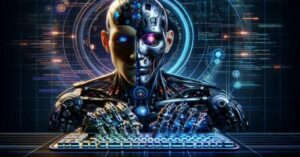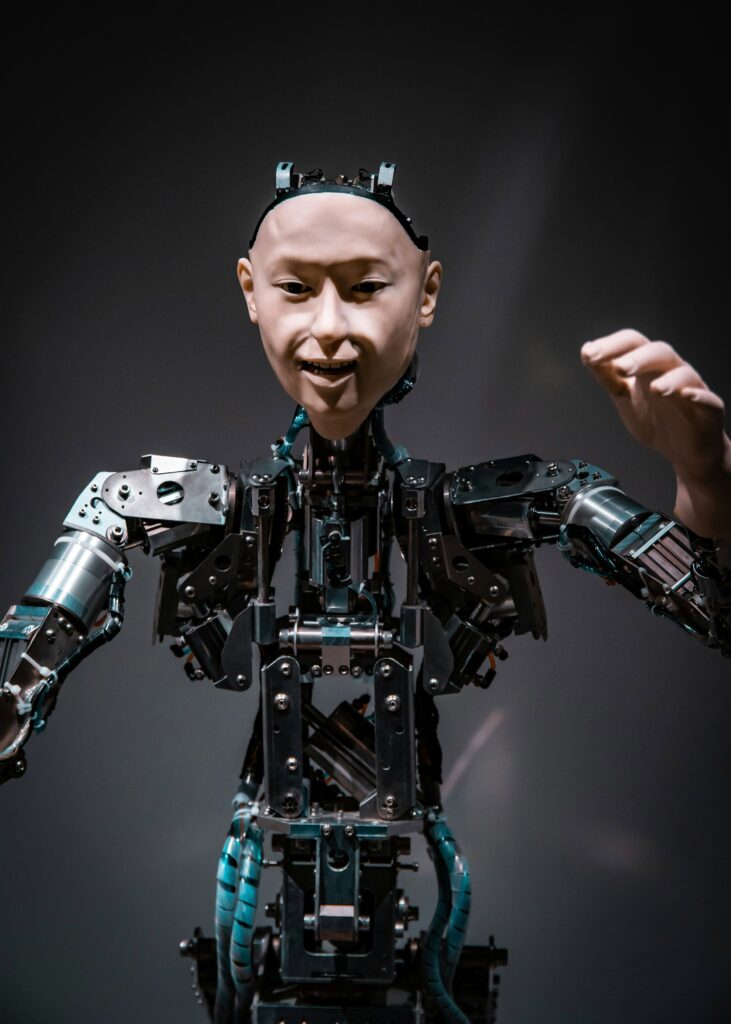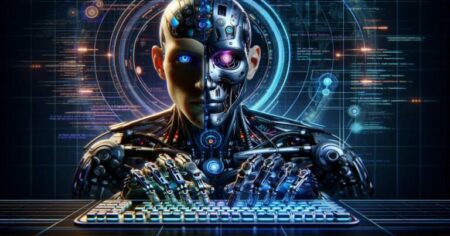The Evolution of AI: A 2025 Perspective
As we look towards 2025, it is crucial to assess the remarkable advancements in artificial intelligence that have taken place in recent years. Initially, AI technology was primarily characterized by basic machine learning systems that performed simple tasks based on programmed rules. However, the landscape has dramatically evolved, incorporating sophisticated algorithms that enable AI systems to learn from data and make decisions autonomously. This evolution is largely attributed to breakthroughs in core areas such as natural language processing (NLP), computer vision, and machine learning. Each of these developments has significantly enhanced AI’s ability to understand and interact with human users more intuitively.
Natural language processing has transformed how humans communicate with machines, enabling more seamless interactions. As NLP technology advances, AI systems can comprehend context, tone, and even underlying sentiments in human language. This capability not only allows for more effective communication but also opens doors to smarter virtual assistants capable of carrying out complex tasks. For instance, in home environments, intelligent personal assistants will not only respond to voice commands but also anticipate user needs based on previous interactions.
Similarly, advancements in computer vision have empowered AI to analyze and interpret visual data with impressive accuracy. By leveraging deep learning techniques, systems can recognize objects, track movements, and even understand scenes. This capability is already being integrated into various applications, from autonomous vehicles to advanced security systems within smart cities.
Moreover, the evolution of machine learning algorithms that support predictive analytics allows for the automation of daily tasks. By analyzing user behavior and historical data, these algorithms can optimize everything from personal schedules to resource management in workplaces. The implications of such advancements are profound, as they not only enhance efficiency but also redefine the human experience in both personal and professional domains. As we prepare for 2025, it is clear that AI’s integration into our lives will bring about transformative changes that were once considered the domain of science fiction.
AI in the Home: Smart Living Redefined
As we approach 2025, the integration of artificial intelligence (AI) into our homes is poised to redefine smart living. With the advent of sophisticated smart home devices, households are becoming increasingly interconnected, creating an ecosystem designed to enhance convenience and efficiency. AI acts as the central nervous system, allowing these devices—ranging from smart thermostats to advanced kitchen appliances—to communicate seamlessly with each other. This interconnectedness not only simplifies daily tasks but also enables a level of automation that profoundly enhances our quality of life.
The role of AI-powered virtual assistants will continue to evolve, offering increasingly personalized experiences. These assistants will not only manage daily schedules and reminders but will also adapt to user preferences over time, learning which routines enhance productivity and well-being. Moreover, their capacity for integration with other smart technologies will allow for dynamic adjustments to be made throughout the home environment, optimizing comfort levels and energy consumption based on real-time data.
Additionally, advanced security systems powered by AI will transform home safety protocols. These systems will utilize machine learning to identify unusual patterns, alerting homeowners to potential threats. Features such as facial recognition and remote monitoring will empower individuals to maintain a secure living space from anywhere in the world.
Energy management solutions will also be a key focus. By analyzing usage patterns, AI can recommend adjustments to optimize energy consumption while maintaining comfort. This not only contributes to reduced energy costs but also supports broader environmental goals. Furthermore, the impact of AI on health and wellness at home cannot be overlooked. With personalized wellness programs leveraging data from wearables and home sensors, AI will facilitate a proactive approach to health, enabling customized fitness routines and continuous health monitoring. Through these innovations, AI will truly redefine what it means to live smartly in our homes.
AI in the Workplace: Boosting Productivity and Collaboration
By 2025, Artificial Intelligence (AI) will become a fundamental component of the workplace, revolutionizing how organizations operate and interact with their workforce. The increasing adoption of AI tools will facilitate remote work, promoting seamless collaboration among teams regardless of geographical barriers. With AI-driven platforms, communication channels will be enhanced, ensuring that employees can easily connect and share information in real-time. This technological shift not only boosts productivity but also fosters a culture of collaboration, where innovative ideas can flourish.
Another key aspect of AI in the workplace is its ability to analyze vast amounts of data to support informed decision-making. AI-driven analytics tools will enable organizations to identify trends, assess performance, and make predictions based on historical data. This data-informed approach ensures that businesses can adapt quickly to market changes while optimizing their operations. As a result, organizations will be better equipped to allocate resources effectively, enhancing overall efficiency.
Moreover, AI will play a pivotal role in automating routine tasks, allowing employees to focus on more strategic initiatives. Tasks such as data entry, scheduling, and report generation will be increasingly handled by AI systems, reducing the burden on human resources. This automation will not only minimize errors but will also improve employee satisfaction by allowing workers to engage in more meaningful and creative work, thus boosting morale and motivation.
AI will also enhance the employee experience through personalized learning and development opportunities. With AI algorithms tailored to individual learning styles and career aspirations, training programs can be customized to meet the needs of each employee. This adaptability in employee development ensures that organizations remain skilled and competitive in an ever-evolving landscape. By leveraging AI to create a dynamic and supportive work environment, businesses will enhance employee engagement, resulting in a more agile and responsive workforce.
AI in Urban Environments: Smart Cities of the Future
The integration of artificial intelligence (AI) in urban environments is poised to revolutionize the way cities operate, making them smarter and more efficient by 2025. One major area where AI will play a critical role is in urban planning. Utilizing advanced algorithms, AI can analyze vast amounts of data regarding population density, land use, and environmental factors to inform city planners. This data-driven approach facilitates the creation of more sustainable urban spaces that meet the needs of residents while adhering to environmental regulations.
Additionally, AI technologies will significantly enhance traffic management systems, helping to reduce congestion and improve overall transportation efficiency. By interpreting real-time data from various sources, including traffic cameras, GPS devices, and social media updates, AI can predict traffic patterns and adjust traffic signals accordingly. This predictive modeling enables smoother flows of vehicular and pedestrian traffic, ultimately decreasing travel times and reducing carbon emissions, thus contributing to a cleaner urban environment.
Public safety is another vital aspect impacted by AI in smart cities. AI-enabled surveillance systems can provide real-time monitoring and threat detection in urban areas. By analyzing patterns within data from public spaces, AI can help law enforcement agencies respond to incidents more quickly and effectively. Moreover, integrating AI with emergency services can optimize resource allocation during crises, ensuring timely responses when every moment counts.
Furthermore, the incorporation of AI into public transport systems promises improved efficiency and accessibility. Real-time tracking of buses and trains through AI technologies can lead to better scheduling and fewer delays, making public transit more appealing to urban residents. These advancements are complemented by the development of smart grids that utilize AI for energy management, promoting sustainable practices in energy consumption.
As cities evolve into intelligent environments, addressing the social implications of AI is paramount. Ensuring equitable access to smart city technologies and addressing data privacy concerns must be prioritized to foster inclusive and secure urban settings. By addressing these factors, AI can indeed play a transformative role in the cities of the future.







